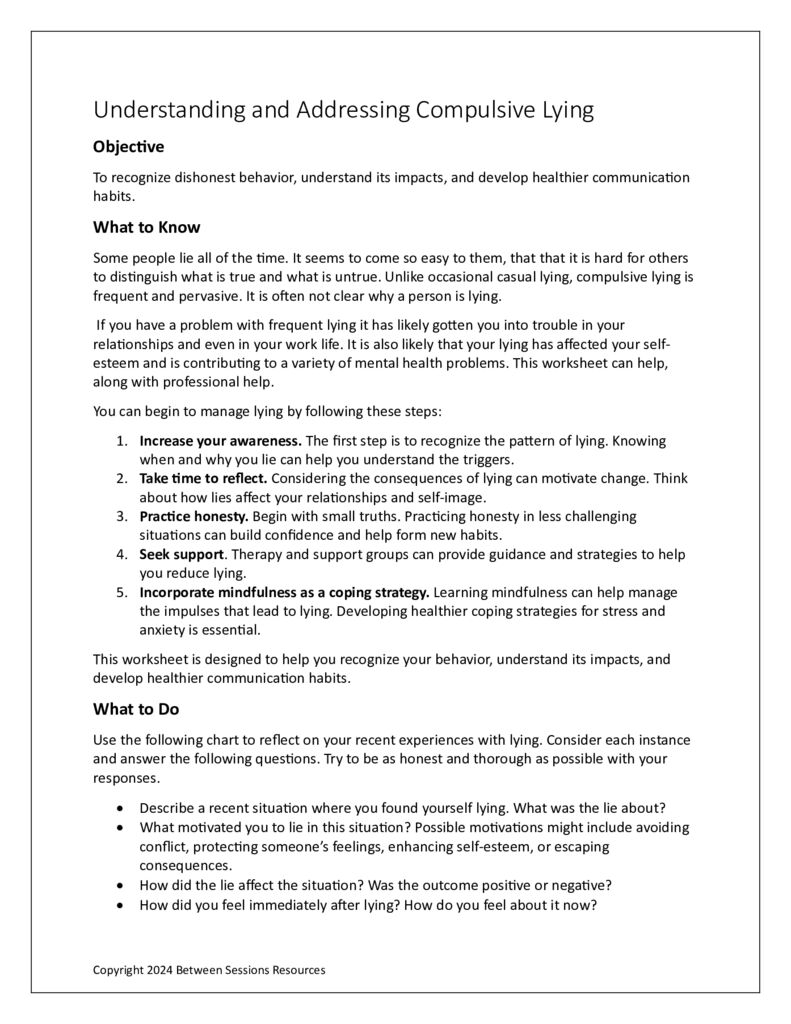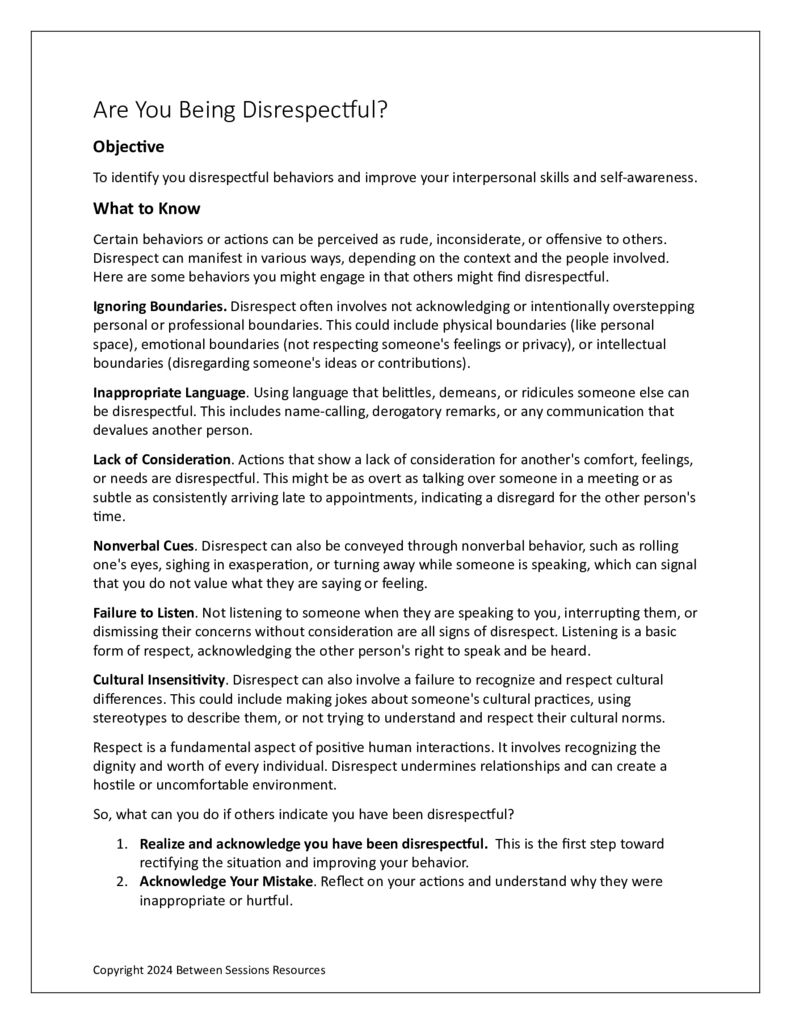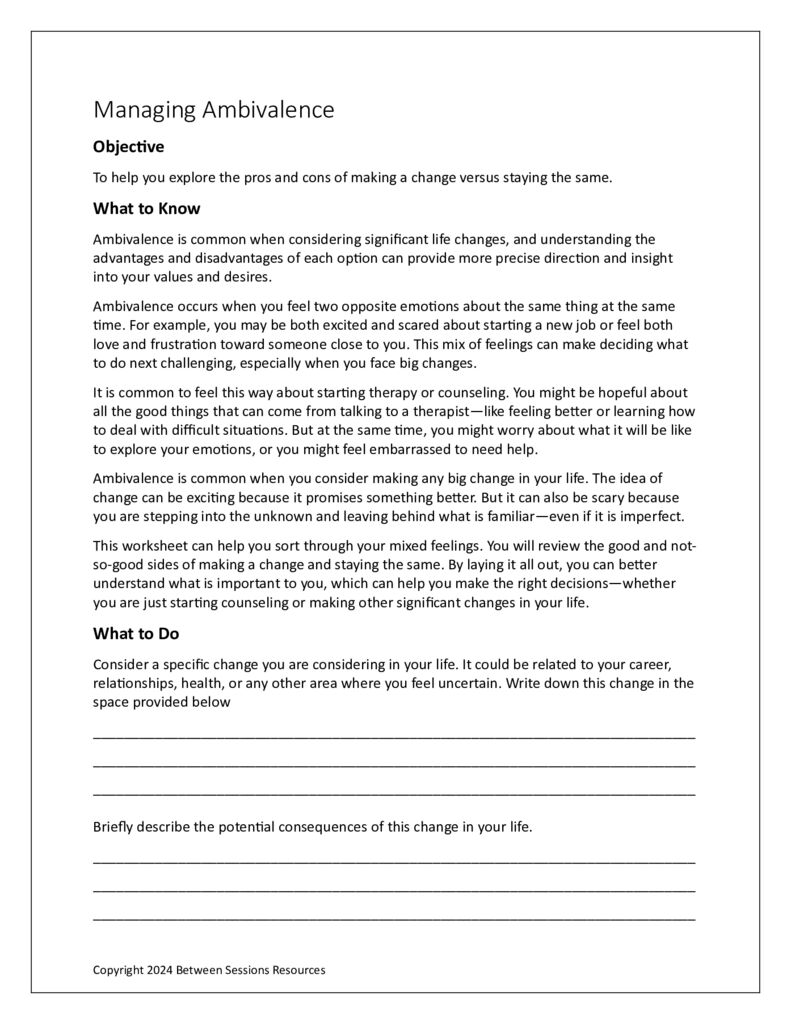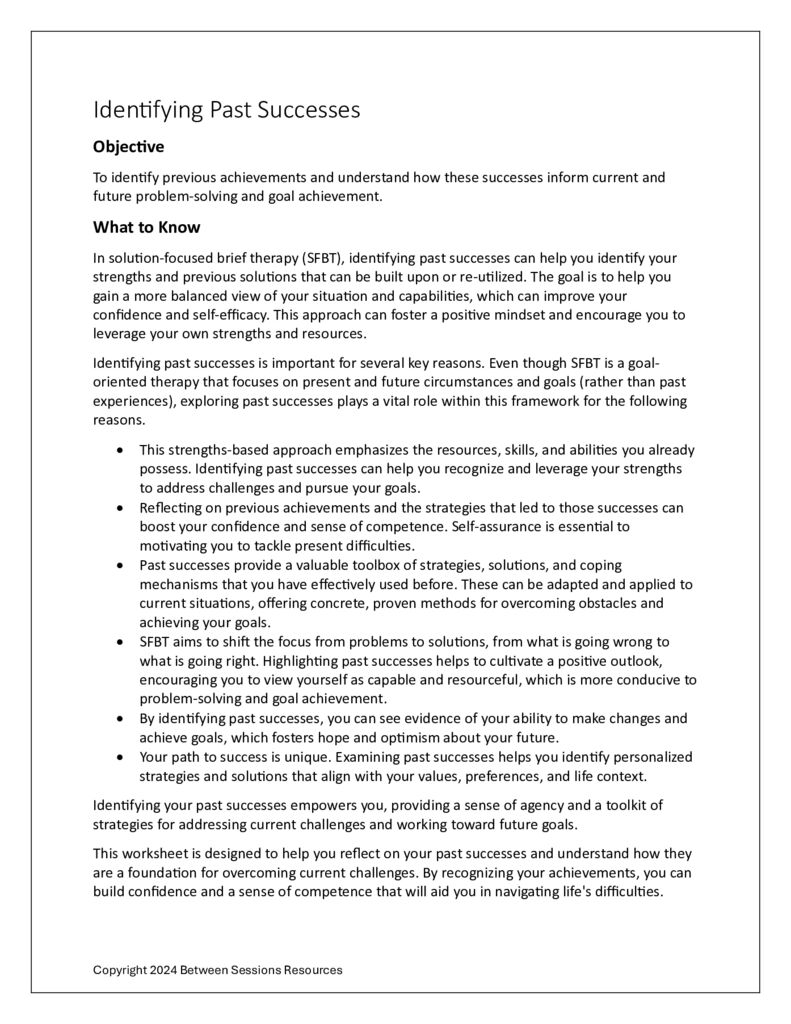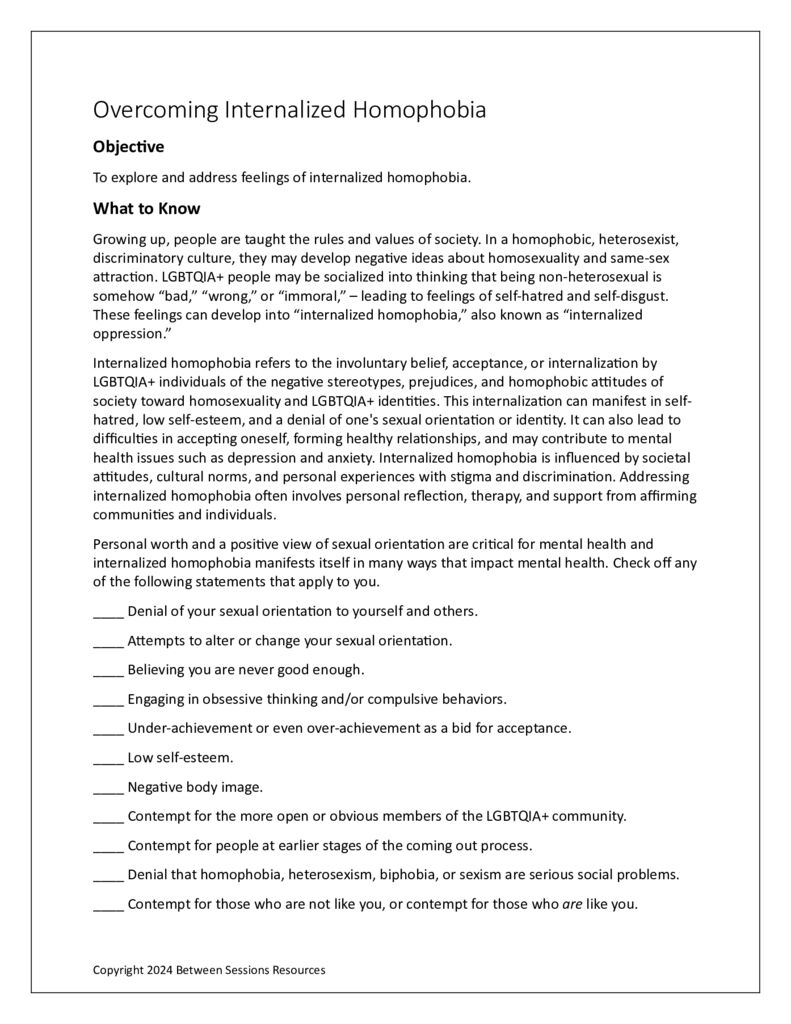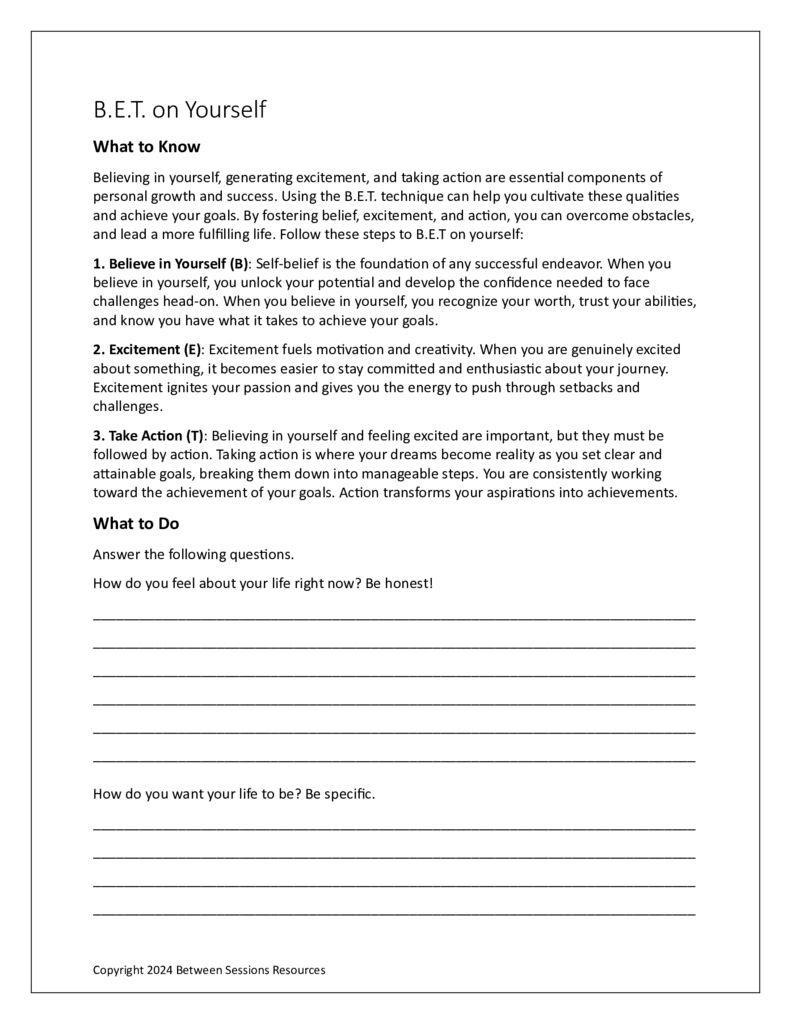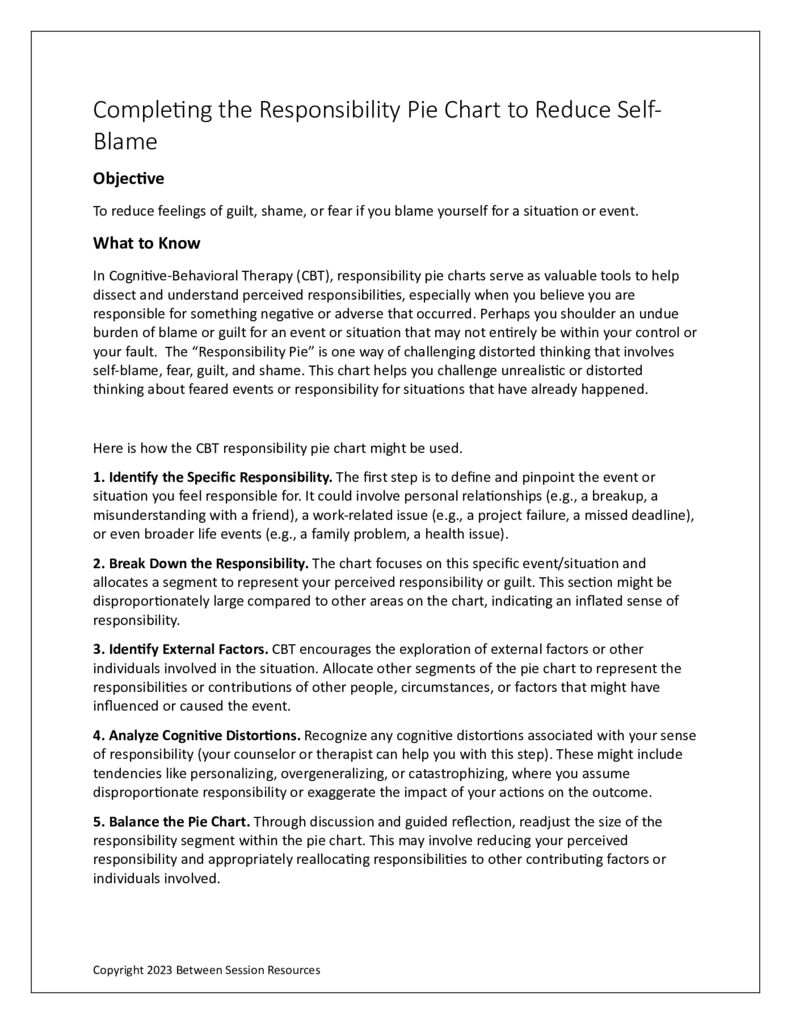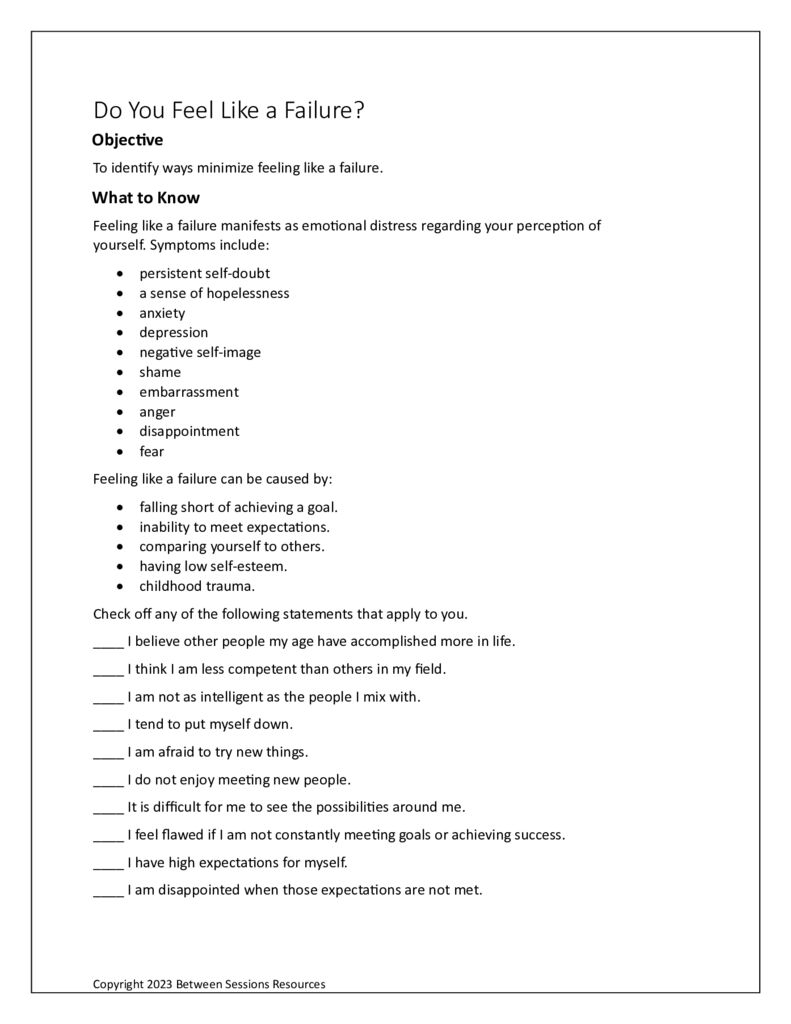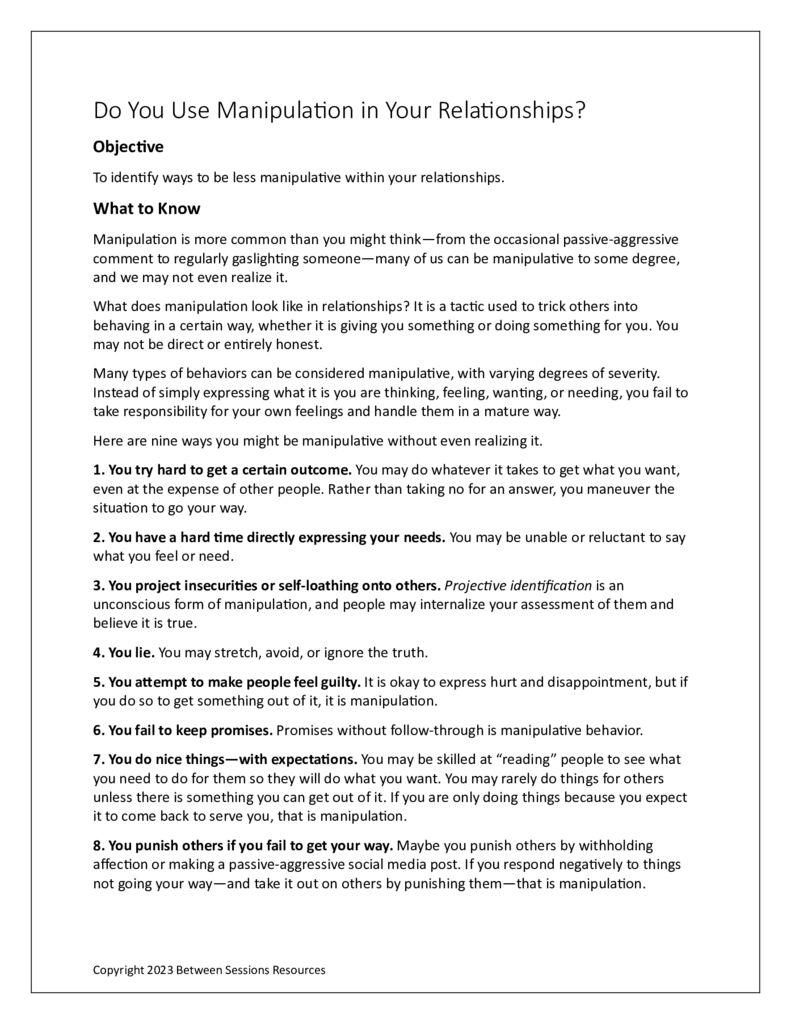This worksheet is designed to help people identify signs of imbalance in their relations and learn new tools to increase harmony. It gives people a list of indicators that their relationship may be imbalanced (i.e. one person always apologizes, one or both people feel unfulfilled) and the worksheet provides thoughtful discussion questions to facilitate understanding. (0724. marriage counseling, relationships, family therapy)
This worksheet is intended to help people recognize dishonest behavior, understand its impacts, and develop healthier communication habits. It explores how compulsive lying can affect relationships and contribute to other mental health problems. (0524, lying, pathological lying, compulsive lying)
This worksheet is designed to help people identify when their behavior may be seen as disrespectful and improve their interpersonal skills and self-awareness. The worksheet includes eight ways for people to repair relationships when others say they have been disrespectful. Questions guide individuals to understand the reasons why they may have been disrespectful. (0424. social skills, interpersonal effectiveness, DBT, relationships)
This worksheet encourages people to explore how they deal with ambivalence in their lives thinking about the pros and cons and the consequences of making changes. It also helps people identify the barriers to change and consider how they can be overcome. (0424, depression, anxiety, relationships, decisions, problem-solving, CBT)
This worksheet is from Solution-Focused Brief Therapy (SFBT) and is designed to help people apply strengths they have used in solving past problems to their current situations. The worksheet explains why this process can be so helpful and presents a series of questions to explore how past solutions have helped. (0324, solution-focused therapy, problem-solving, decision-making)
Because of cultural stereotypes, LGBTQIA+ people may be socialized into thinking that being non-heterosexual is somehow “bad,” “wrong,” or “immoral,” – leading to feelings of low self-esteem and even self-hatred. This worksheet is designed to help people determine if they have “internalized homophobia” also known as “internalized oppression.” The worksheet helps people identify negative and distorted thinking and replace these thoughts with self-acceptance and self-love. (0324. homophobia, LGBTQIA+)
This worksheet discusses three components of personal growth: Believe in Yourself, Excitement, and Take Action. The worksheet is designed to help people explore their skills and strengths, develop a passion for their goals and dreams, and commit to specific steps to find new achievements. (0224. positive psychology, coaching, self-worth, self-esteem)
In Cognitive-Behavioral Therapy (CBT), responsibility pie charts can serve as valuable tools to help dissect and understand perceived responsibilities, especially when people believe they are responsible for some serious problem or event. This technique asks people to identify and break down responsibility, identify external factors, analyze cognitive distortions, and develop specific coping strategies. (1123, CBT, cognitive restructuring, self-blame, depression)
This worksheet explores why some people bounce back from failure while others experience feelings of self-doubt, depression, anger, and disappointment. It suggests 8 ways to overcome the negative feelings that can accompany a failure, including engaging in self-compassion, focusing on the process rather than the results, challenging negative thoughts, and more. The worksheet provides questions to help people explore their feelings of failure and find appropriate strategies to move on. (1023, depression, anxiety, job satisfaction, anxiety)
Manipulation is a tactic used to trick others into behaving in certain ways. This worksheet details the signs of manipulation and helps people understand how they can create healthier relationships by reducing manipulative behaviors. (1023, narcissism, NPD, manipulation, relationships, BPD, borderline personality disorder, narcissistic personality disorder)


